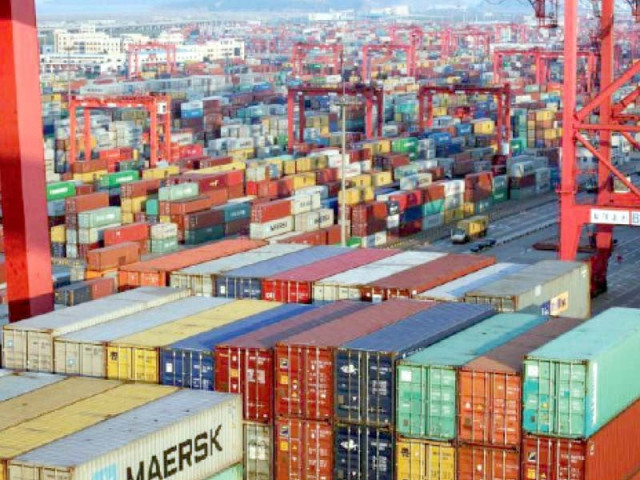Shipowners urge deep berth dredging
In case of failure, port can be declared unsafe as shippers suffer losses

Shipowners and blue economy experts have called for proper dredging of all three deep berths at Karachi Gateway Terminal Limited (KGTL) and continuously monitoring them with a view to averting any untoward incidents.
Improper dredging could result in losses and poor reputation such as if a ship sits down, it will break into pieces. Dredging of berths has started a couple of months after shipowners suffered heavy losses due to less loading of goods for want of deep dredging.
If dredging is not carried out, the Karachi Port could be declared unsafe because of hefty losses suffered by shipowners as well as the local cement industry for the past few months.
They have appealed to the federal minister for maritime affairs and the KGTL chief executive officer to take serious notice of the need for proper dredging. On a war footing, the Karachi Port Trust (KPT) chairman with the terminal officer concerned must order deep dredging of berths up to 13 metres.
Last year, shipowners were facing the same problems and these are still in place. If the 13-metre draft is declared, it will be at a low tide. There is hardly the 13-metre draft at a high tide at one or two berths. Ships dock at night once high tides come; they nip down to their respective destinations after loading goods, which is a dangerous practice.
KPT, KGTL, ship agents, stevedores' associations and others must knuckle down to work sincerely, otherwise owners of ships may declare Karachi Port as unsafe.
KPT has small dredgers and they are unable to dredge because of numerous faults. It is observed that costly dredgers are being purchased, but their operators are not available. They work at initial stages, but they start acting up because of poor maintenance and the lack of spare parts.
KPT has declared some berths with the 13-metre draft; Fauji Akbar Portia (FAP) terminal of the Port Qasim Authority (PQA) has maintained the 13-metre draft, while continuously dredging the berths.
A 10.5-metre ship sat down on a 12-metre berth and the loaded rice was returned. A clinker ship sits down on 11.8 metres, then loading starts with a high tide, which is not safe. Every ship sits down on a 12-metre draft.
The monsoon season wore on, but there was no immediate dredging at the berth side of the KPT. The dredging has just started and there is a 12-metre draft at the port side.
"We are unable to dredge deeply up to 13 metres; Chinese are dredging at the Port Bin Qasim, defence area and others. They (Chinese) must be singled out. A permanent and continuous berth dredging contract must be awarded for safe work to the private sector except for the monsoon season. A small dredger, which docks at the berth side, should continue to dredge there," said Sea-trade Group of Companies Chairman and blue economy expert Muhammad Najib Balagamwala.
"What's more, KPT dues – fee paid by ships for docking at the port – have skyrocketed to 40% and it is one of the most expensive ports in this region. It must spend funds on dredging and other facilities instead of organising seminars and conferences, building a fountain, flyovers and the like. If the port is unsafe and risky, where will the income come from?"
He pointed out that if the freight of clinker rose by $2, it would stop clinker exports because the commodity was already being sold below the variable cost.
Exports of clinker are feared to decrease by over one million tonnes and eventually the income will fall and port dues will go up. Today, the docking of a ship at the port costs as high as Rs30 million.
"We have to scale up exports and push down import costs. There is no attention and spending on proper and timely dredging in spite of paying high port charges of $2 to $3 per tonne," he said.



















COMMENTS
Comments are moderated and generally will be posted if they are on-topic and not abusive.
For more information, please see our Comments FAQ